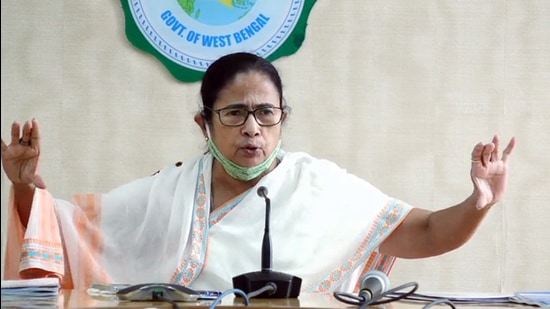The dynastic turn in TMC
While there are complex factors behind the resilience of dynastic politics — the brand recall value of leaders, a quicker route to mass legitimacy, control over finances — it leaves Indian democracy poorer. Ms Banerjee has followed, rather than led, this time around.
With the appointment of West Bengal chief minister Mamata Banerjee’s nephew, Abhishek Banerjee, as the party’s all-India general secretary, yet another regional party in India has formally taken the dynastic route to political leadership. Mr Banerjee, a Member of Parliament, has been the de facto number two in the Trinamool Congress (TMC) for some years now; he also played a key role in the election campaign of 2021, bringing in consultant Prashant Kishor to the aid of the party after the 2019 Lok Sabha election debacle. But the de facto has now become de jure — and the line of succession in the TMC is clear. Ms Banerjee’s chosen heir is Mr Banerjee.

The episode throws up a larger question about the resilience of dynastic politics — where the bloodline determines political leadership. This is not just true for the Congress nationally, but the entire gamut of regional parties. In the Dravida Munnetra Kazhagam, MK Stalin succeeded M Karunanidhi. In Shiv Sena, Uddhav Thackeray took forward Bal Thackeray’s legacy, though he has moved it in a different direction. In the Rashtriya Janata Dal, Tejashwi Yadav has emerged as the clear leader with his father, Lalu Prasad, out of political action due to corruption cases and ill health. In the Samajwadi Party, Akhilesh Yadav fought a bruising battle with his uncle and even engaged in shadow-boxing with his father, but established his control. In the Bahujan Samaj Party, Mayawati’s nephew is assuming a greater role. The Abdullahs control the National Conference, and in Peoples Democratic Party, the Mufti’s death saw his daughter Mehbooba Mufti take over the party. The Indian National Lok Dal is the party of the Chautalas; Chandrababu Naidu is grooming his son to take over the Telugu Desam Party; Jagan Mohan Reddy built on his father’s legacy to create the YSR Congress Party; the Pawar family runs the Nationalist Congress Party; and Chirag Paswan has taken over the Lok Janashakti Party.
But what about regional parties where the leader does not have any immediate family? The All India Anna Dravida Munnetra Kazhagam struggled after J Jayalalithaa’s death. The future of Naveen Patnaik’s Biju Janata Dal and Nitish Kumar’s Janata Dal (United) is uncertain, after they fade. It appears that Ms Banerjee has looked at all these experiences and, unfortunately, instead of pioneering a democratic method of leadership selection, picked a family member. While there are complex factors behind the resilience of dynastic politics — the brand recall value of leaders, a quicker route to mass legitimacy, control over finances — it leaves Indian democracy poorer. Ms Banerjee has followed, rather than led, this time around.



